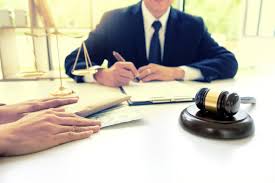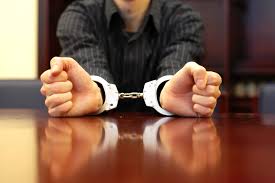Should I Hire a Criminal Defense Attorney Before I am Charged?
Understandably, subjects of a criminal investigation are reluctant to hire a criminal defense attorney before they are charged. They think to themselves that they might be wasting money, if they are ultimately not going to be charged anyway. This flawed logic is akin to believing that you should not quit smoking until you have lung cancer. Just as a smoker can greatly improve his health by quitting smoking before he contracts a serious illness, so too can a suspect greatly ameliorate or even eliminate his damages by hiring an attorney before he has been charged.
The first thing that a defense lawyer does is build a wall of separation between the suspect and the detectives or other members of law enforcement. Very often, a suspect does irreparable harm to his case before ever consulting an attorney. Many defendants think that they are smooth enough to meet with a detective and talk their way out of charges. The problem with this approach is that police detectives are highly trained in the science of interrogation, while usually only spies, secret agents and special ops officers have any training in counter-interrogation techniques. Police detectives may catch a suspect unwittingly making inconsistent statements or showing non-verbal signs of deception, even while the suspect naively believes that everything is going his way.
Rightly or wrongly, police officers tend to consider an unrepresented suspect’s asserting his right to remain silent as evidence of guilt. Although such silence is not admissible in court, it may influence law enforcement’s decision as to whether to charge a suspect and what to charge him with. When an attorney advises his client to remain silent, law enforcement simply views this as standard operating procedure, rather than any indicator of guilt.
A defense attorney can negotiate with the district attorney’s office or police detective with respect to what charges will ultimately be filed. The initial charges will play a major role in plea negotiations after charges have been filed. The less serious the initial charges, the better a defendant’s ultimate outcome is likely to be. Likewise, a defendant is in far less jeopardy if he elects to go to trial, if his initial charges are less serious.
Sometimes, a defense attorney can successfully argue for no charges to be filed at all. Usually, this is through the work of the defense attorney’s own investigation with the assistance of a licensed private investigator and/ or polygraph operator, but not always. In one recent Centre County case I had, I pointed out to a drug detective and prosecutor that the police had conducted an illegal search through an innocent mistake. Had they filed charges, the evidence would have been suppressed, meaning that it would not be admissible in court. The detective was actually appreciative that I pointed this out, and opted not to file any charges. The client was even more relived, because it would have been very hard for him to get a job with an open criminal charge on his record for the next six months, until the case would have ultimately been resolved in his favor.

When To Hire A Criminal Defense Attorney
By hiring a criminal defense lawyer right away, you will have an advocate on your side defending your rights. The longer you wait to retain your attorney, the more you stand to risk by going through the process alone. What may appear to be a simple matter could become incredibly complex without competent and dedicated professional assisting you. Your future may be at stake and you only have one chance to defend yourself. Never go into a courtroom alone!
Are you Under Investigation?
If you are being investigated for a crime, your attorney should be present during any and all questioning. Police officers may tell you that your attorney is not required for the preliminary questioning and they may tell you that they are simply asking routine questions. However, the answers given by you to those questions will become evidence later. You don’t get a second chance. If you are being investigated and you have retained our attorneys, we will help you make crucial decisions so that you can rest assured all of your valuable constitutional rights are upheld. If you have not hired one of our attorneys, then you should ask for the time to do so before you answer any questions by a police officer. You have a constitutional right to have your attorney present during any questioning by law enforcement.
The investigators may ask you difficult questions as they try to get information from you and trick you into giving the answers they would like. Our defense attorneys can protect you from this type of questioning. The reality is that your attorney is trained to know the legal system and having him or her present during the investigative process can sometimes influence charges being reduced or even avoided all together. You can’t afford to do this alone!
Have you Been Arrested?
If you have been arrested, the authorities should have provided you with a statement of your Miranda rights. These rights are guaranteed by the United States and Wisconsin Constitution’s and include the right to have your attorney present during any questioning. You should make sure to maintain these rights. An attorney is necessary from this point forward to ensure that justice is upheld and you receive the best outcome possible.

At What Point Should You Hire a Criminal Defense Attorney?
If you are facing charges that may result in you spending time behind bars, you need to hire a criminal defense lawyer right away.
The cost is usually the main concern but hiring an attorney early in the process can actually save you money in the long run.
The more serious the crime, the more severe the consequences. So that you fully understand what charges you are facing, you need to speak to a lawyer before the arraignment.
Arraignment
This is when you will plead guilty, not guilty, or no contest. Your attorney will recommend how you should plead and represent you in the hearing.
Your lawyer will make a request for bail or ask that you be released on your own recognizance.
If you plead guilty, enter a plea bargain or no-contest, a sentencing date is scheduled. If you plead not guilty, then the pre-trial conference is next.
Pre-Trial
If the pre-trial conference does not result in a solution or plea bargain, an appointed judge or a jury trial will hear your case.
Your lawyer will try to get your case thrown out due to lack of evidence or could get you a plea deal to get the charges reduced. You could get a reduction of jail time or get probation instead of jail.
At Trial
Your lawyer will work with you and develop the best strategy for your case.
When your case goes to court, your attorney will speak for you. He will call witnesses and cross-examine the prosecutor’s witnesses.
The state has the burden of proof and must convince the jury that you committed the crime beyond a reasonable doubt.
Your lawyer will show the jury that the burden of proof has not been met and there is not enough evidence to convict you of the crime.
Sentencing
If you are convicted of the crime or you accept a plea bargain, your lawyer will try to get you the minimum sentence.
If you have to serve jail time, he or she will try to convince the judge that probation or an alternative to incarceration would better serve justice.

Questions to Ask Before Hiring a Criminal Lawyer
If need to hire a criminal lawyer, you probably need to find one soon. But before you hire just any criminal defense attorney, you should get the answers to important questions. This article can help.
Time is of the essence if you are facing criminal charges. Still, you want the best lawyer you can find. And you want someone who has experience defending others charged with the same crime as you. After getting one or two names of criminal defense lawyers near you, try to set up appointments to meet the lawyers. Many good lawyers are busy, so you may end up meeting with their staff. Dont eliminate them as possible candidates just because they are busy.
It is important you come to the meetings prepared. Some criminal defense attorneys will ask you to fill out a questionnaire before you meeting. Also, forward or bring any documents the lawyer has requested.
You should also bring several items that will help the criminal lawyer assess your case, including:
Any documents you received from the court showing your charges and next court appearance date
Your bail papers
If your property was searched, any paperwork the police gave you
A copy of the police report if possible
Criminal defense attorneys will also find it helpful if you can provide a list of any witnesses, victims, and other defendants. They need to verify that neither they nor anyone else in their office has ever represented any of the other parties. If one has, then that lawyer may not be able to represent you because of a conflict of interest.
You should also bring a list of questions to ask in an effort to decide whether to hire the lawyer. This article includes many suggestions. Feel free to pick and choose among them, adding questions of your own when needed. Also bring along a pen and some paper to record the answers and any notes you want to remember.
The Criminal Lawyer’s Background & Experience
When you first meet with a criminal lawyer, its important to find out if he or she has prior experience defending against similar charges. If you are charged with driving under the influence of alcohol, for example, you dont need a lawyer who primarily defends felony murder suspects. Some questions to ask include:
- Where did you attend law school? When did you graduate?
- How long have you been practicing criminal law?
- How often do you appear in the courthouse where my case will be handled?
- Do you frequently negotiate plea agreements with the prosecutors office? How would you describe your relationship with the prosecutors office?
- How often do your clients go to trial?
- How familiar are you with the charges against me? What percentage of your practice is in representing clients with similar charges?
- Do you belong to any bar associations or other professional organizations? If so, which ones?
Hiring a Criminal Lawyer
After meeting with a criminal lawyer or two, its time to choose one. You may have only met with one but are confident that you found your attorney. Or, maybe you met with several, but one was clearly more qualified. Your decision, then, is an easy one.
But if youre having a tough time deciding, consider calling a few former clients. You want to talk to people who can speak to the lawyers skills. Would they recommend the lawyer? What did they like and dislike about the lawyer?
If you still cant decide, its time to ask yourself a few questions:
- Which attorney has the experience I need with the charges Im facing?
- Which one offered advice I found most helpful?
- In which one am I most confident?
- Whose legal fees seemed reasonable?
The answers to these questions should lead you to the best criminal defense attorney to represent you.